In this easy recipe, flank steak is marinated in olive oil and spices and broiled to a perfect medium rare. This effortless recipe is ideal for a weeknight dinner, and the leftovers are perfect in a salad!
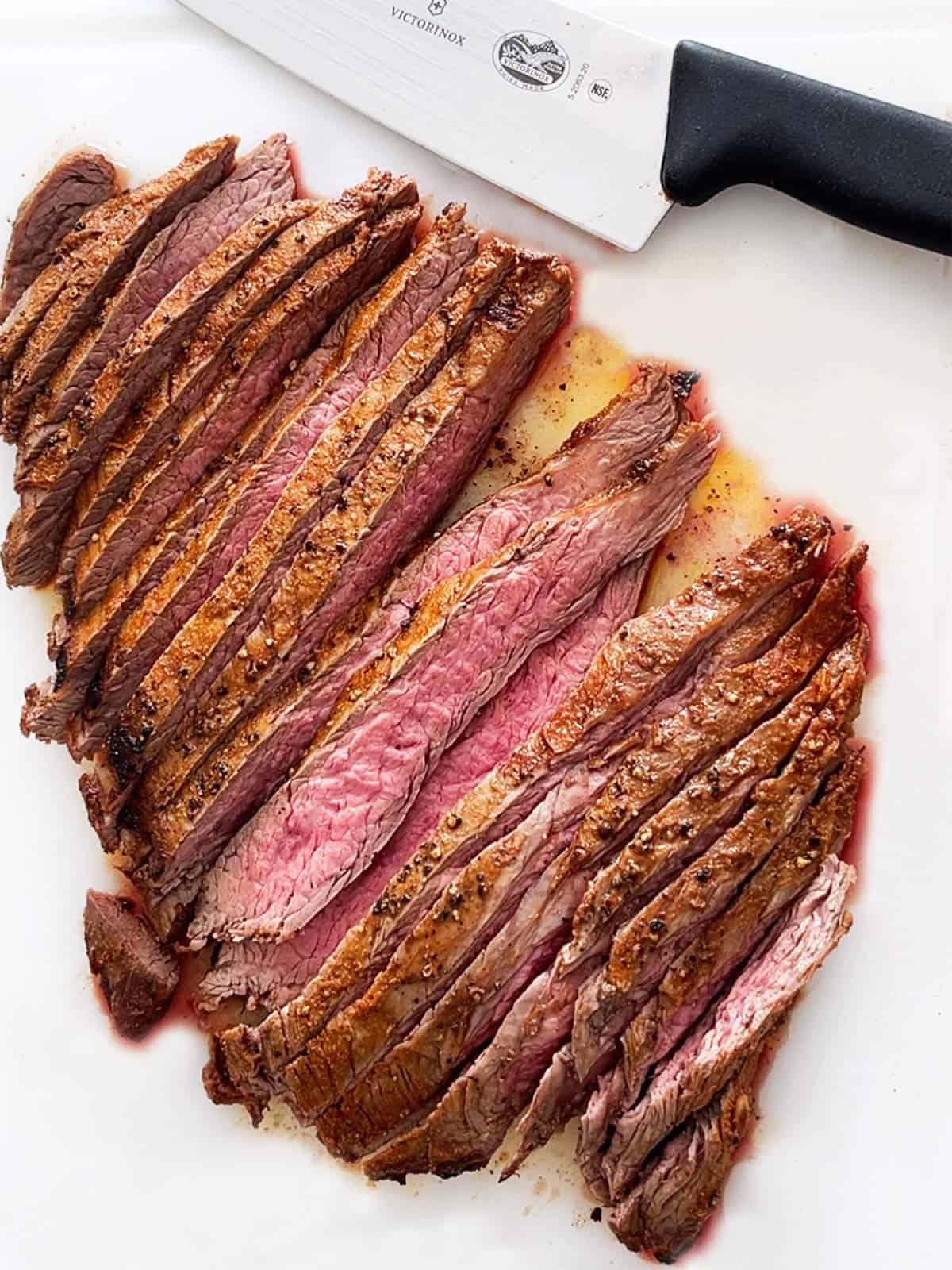
As much as I enjoy ribeye steak, New York steak, and picanha steak, those are usually reserved for special occasions. When I cook everyday steaks, I choose cheaper cuts like skirt steak, flat iron steak, and flank steak. These cuts tend to be tougher, so you'll want to cook them briefly and cut them across the grain. But they'll reward you with a robust, beefy taste!
Ingredients

See the recipe card for exact measurements. Here are my comments on the ingredients.
Flank steak: This cut of beef, called bavette in French, comes from the abdominal muscles of the cow and is widely available in U.S. grocery stores. Most cuts are around 2 pounds. They come folded, and before cooking them, you unfold them.
Marinade: Olive oil, red wine vinegar, garlic powder, and smoked paprika. If you prefer to use an oil with a high smoking point, use avocado oil.
To season: Kosher salt and black pepper.
Instructions
The detailed instructions and step-by-step photos are included in the recipe card. Here's a quick overview.
Mix the marinade ingredients. Unfold the steak and place it in a resealable bag. Add the marinade and turn to coat. Seal the bag and marinate the steak at room temperature for 30 minutes.
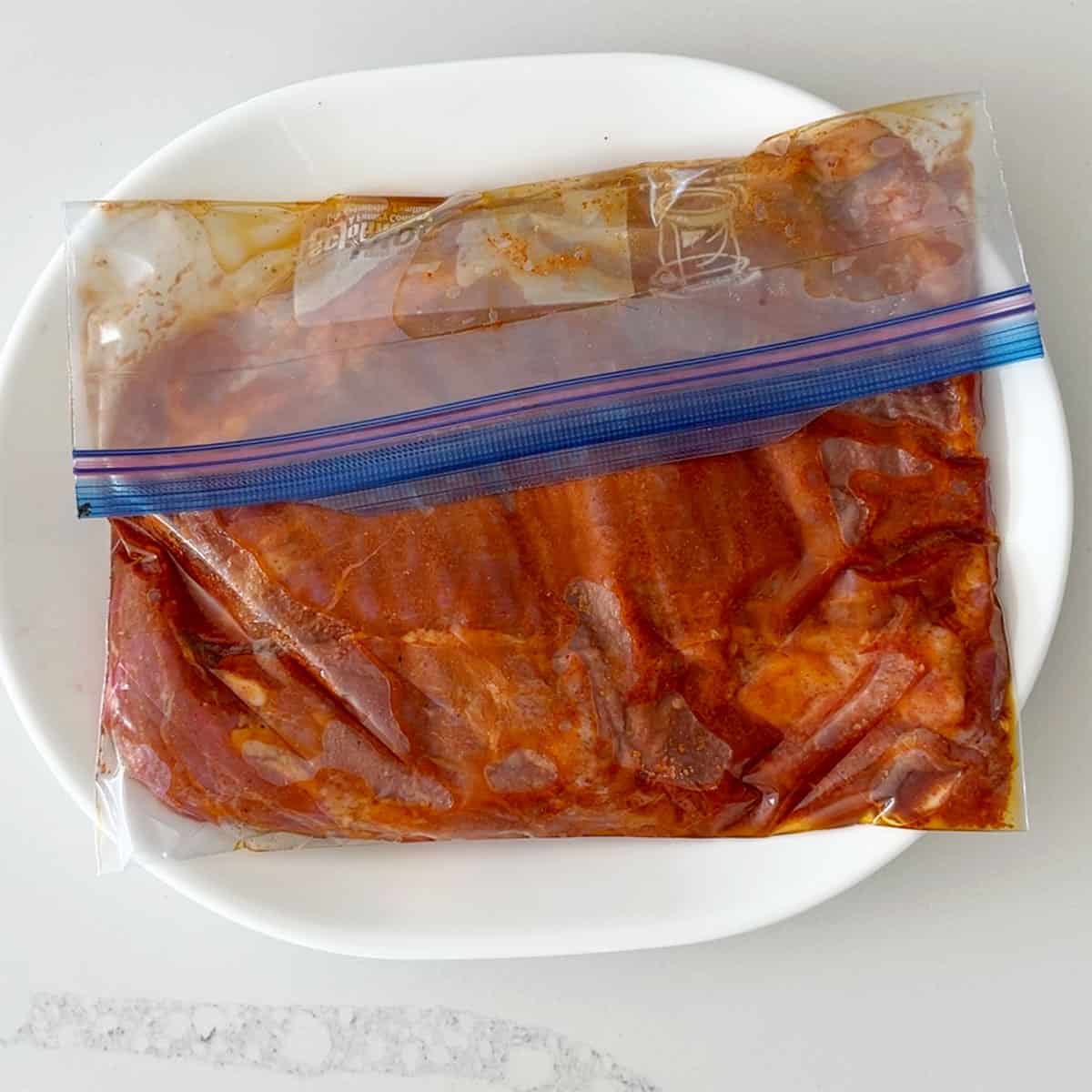
Heat the broiler on high (550°F). Remove the steak from the marinade and season it with salt and pepper. Place it on a foil-lined rimmed baking sheet and broil until it's done to your liking.
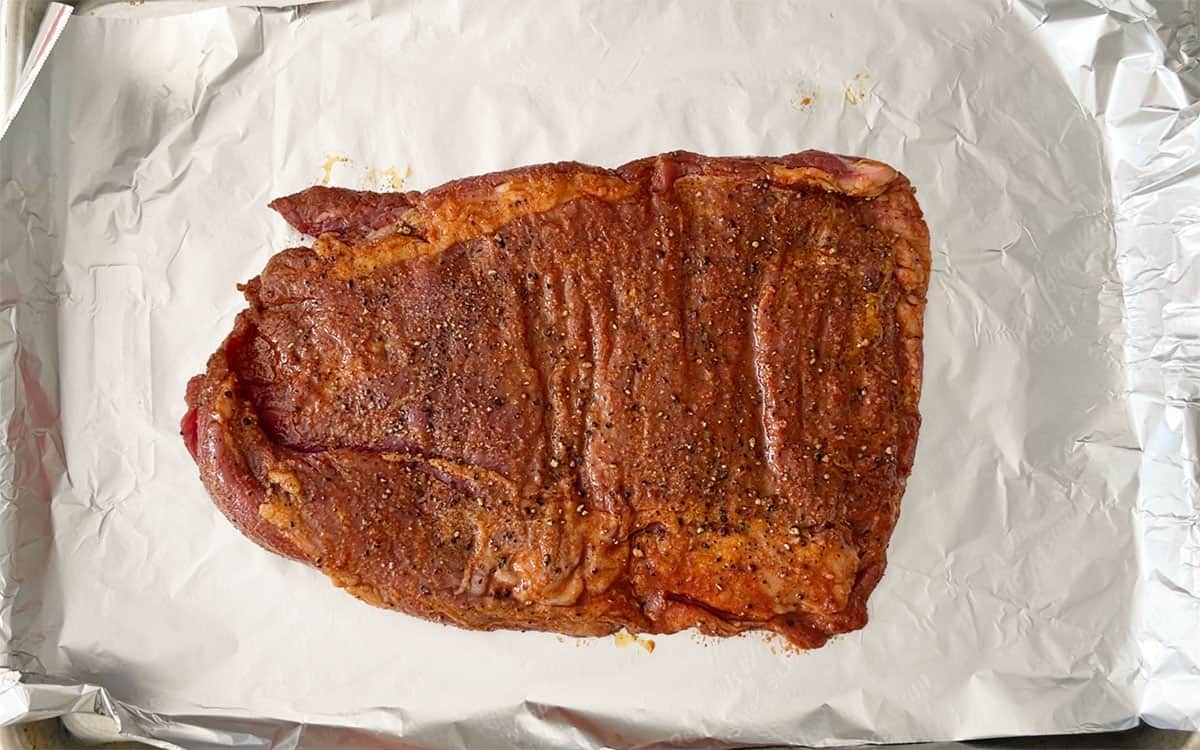
Transfer the steak to a cutting board. Let it rest for 10 minutes, then slice it thinly across the grain and serve.
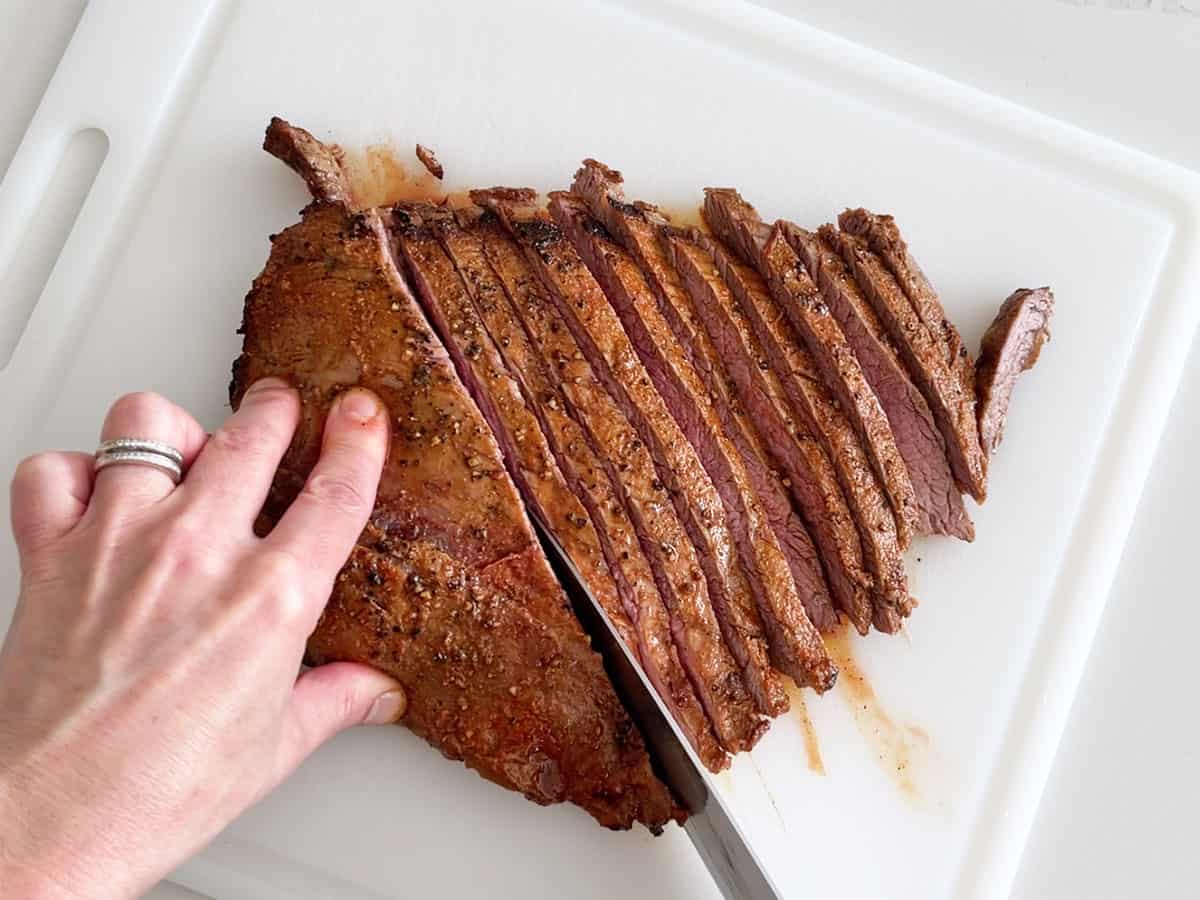
Recipe Tips
- Like all steaks and roasts, it's important to let the meat rest before you slice it. If you cut into it immediately, juices will escape, and the steak will not be as juicy.
- Please don't skip marinating the steak. The vinegar in the marinade helps tenderize the steak by breaking down the muscle fibers. The marinade also nicely flavors the steak. A previous version of this recipe didn't include a marinade (I simply rubbed the steak in olive oil and spices and broiled it), and it was flavorful but way tougher than this version, which is nice and tender.
Recipe FAQs
Since this is a flavorful but tough and fibrous cut (and I'm referring to muscle fiber here), it's best to cook it quickly and minimally over high heat. Alternatively, you can cook it low and slow, like I do when making homemade beef jerky.
It simply means cutting a piece of meat in a way that severs its muscle fibers, making it easier to chew and digest.
It's best to examine the piece of meat when it's still raw - that's when it's easiest to identify the direction of the grain. You'll look for parallel lines of muscle fiber running down the meat.
In some cuts, such as tri-tip, the grain runs in different directions. In a flank steak, the muscle fibers are prominent and easy to spot, and they also tend to all run in the same direction, as shown in the image below.
Both are thin cuts with great beefy flavor, and both should be cooked medium-rare to prevent them from being tough and chewy.
They come from different parts of the animal, though. Flank steak comes from the cow's abdomen and is relatively lean, while flat iron steak comes from the shoulder (chuck), has more marbling, and is more tender. The photo below shows the two different cuts.
Serving Suggestions
This versatile main dish pairs well with lots of sides. I especially like to serve it with a salad since it cooks fast under the broiler, and I can't use the oven to make anything simultaneously, nor do I have the time (or patience!) to cook something on the stove. So, I most often serve this steak with any of the following:
- Asparagus salad
- Creamy cucumber salad
- Broccoli salad
- Israeli salad
- Caprese salad
- Cucumber tomato salad
- Cauliflower potato salad
- Asian cucumber salad, as shown in the photo below
It also pairs well with pickles, including quick pickles and pickled red onions.
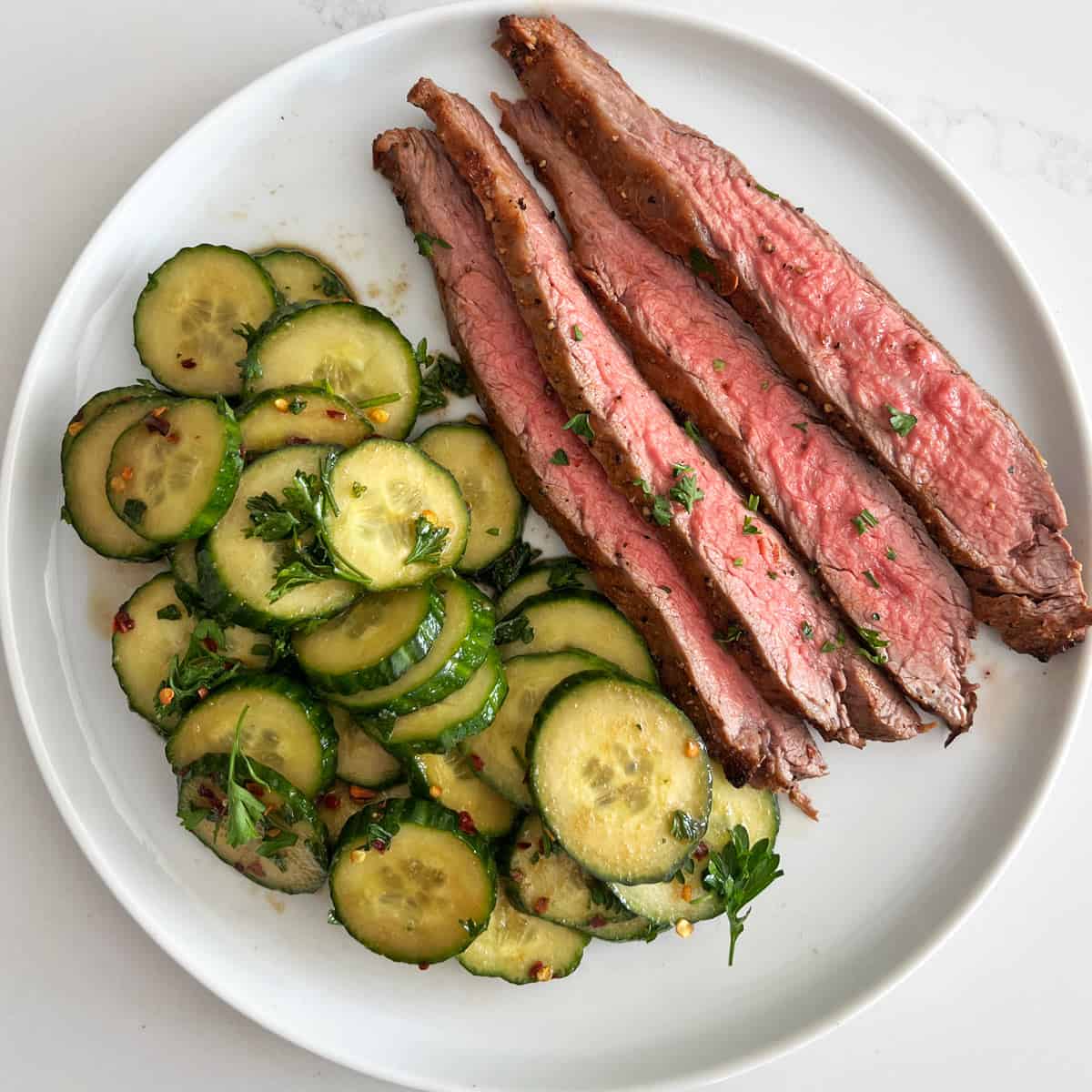
Storing and Using the Leftovers
You can keep the leftovers in an airtight container in the fridge for up to 4 days. I keep them in a glass food storage container, as shown in the image below.

Reheat them covered in the microwave at 50% power, or add them cold to a salad. I sometimes use them in this Cobb salad instead of chicken. Here's a photo of the cold leftovers arranged on the simplest salad - lettuce, tomatoes, kalamata olives, and a drizzle of ranch dressing.

You can also place the leftovers in freezer bags and freeze them for up to three months. Thaw them overnight in the fridge.
Recipe Card
Broiled Flank Steak Recipe
Video
Ingredients
Marinade:
- 4 tablespoons olive oil - or avocado oil
- 2 tablespoon red wine vinegar
- 1 teaspoon garlic powder - minced
- 1 teaspoon smoked paprika
Steak:
- 2 pounds flank steak
- 2 teaspoons Diamond Crystal kosher salt - or 1 teaspoon of any other salt, including Morton kosher salt
- ½ teaspoon black pepper
Instructions
- In a small bowl, mix the marinade ingredients (olive oil, vinegar, garlic powder, and smoked paprika).
- Unfold the steak and place it on a work surface. Examine it and locate the meat fibers - later, when it's cooked, you'll want to cut across them.
- Place the steak in a gallon-size resealable bag. Add the marinade and turn to coat (I use my hands to ensure the steak is coated in the marinade). Seal the bag, removing as much air as possible, and marinate the steak at room temperature for 30 minutes.
- Position an oven rack 6 inches below the broiler element (not directly below). Preheat the broiler to high (550°F). Line a large, rimmed baking sheet with foil for easy cleanup.
- Remove the steak from the marinade. Let excess marinade drip off, but don't wipe it off the steak. Season the steak with salt and pepper on both sides.
- Place the steak on the prepared baking sheet. Place the pan in the oven and broil the steak for 5-6 minutes per side for medium-rare (135°F) or 6-7 minutes per side for medium (145°F). Check with an instant-read thermometer to make sure it's done to your liking.
- Remove the steak to a cutting board. Let it rest for 10 minutes.
- Slice the steak thinly against the grain. Serve immediately.
Notes
- According to the USDA, whole cuts of beef should be cooked to an internal temperature of 145°F (medium) with a 3-minute rest.
- The nutrition info assumes that half the marinade will remain in the bag.
- Please don't skip marinating the steak. The vinegar in the marinade helps tenderize the steak by breaking down the muscle fibers. The marinade also nicely flavors the steak.
- Like all steaks and roasts, it's important to let the meat rest before you slice it. If you cut into it right away, juices will escape into the cutting board, and the steak will not be as juicy.
- Cutting against the grain means cutting a piece of meat in a way that severs its muscle fibers, making it easier to chew and digest. It's best to examine the steak when it's still raw - that's when it's easiest to identify the direction of the grain. You'll basically be looking for parallel lines of muscle fiber running down the meat. In a flank steak, the muscle fibers are prominent and easy to spot, and they also tend to all run in the same direction, so they are easier to sever.
- You can keep the leftovers in an airtight container in the fridge for up to 4 days. Reheat them covered in the microwave at 50% power, or use them cold in a salad. You can also place the cooled leftovers in freezer bags and freeze them for up to three months. Thaw them overnight in the fridge.
Nutrition per Serving
Save this Recipe!
We will also add you to our weekly newsletter. Unsubscribe anytime. See healthyrecipesblogs.com/privacy/ to learn how we use your email.
Disclaimers
Most recipes are low-carb and gluten-free, but some are not. Recommended and linked products are not guaranteed to be gluten-free. Nutrition info is approximate. Please verify it independently. The carb count excludes non-nutritive sweeteners. Please read these Terms of Use before using any of my recipes.

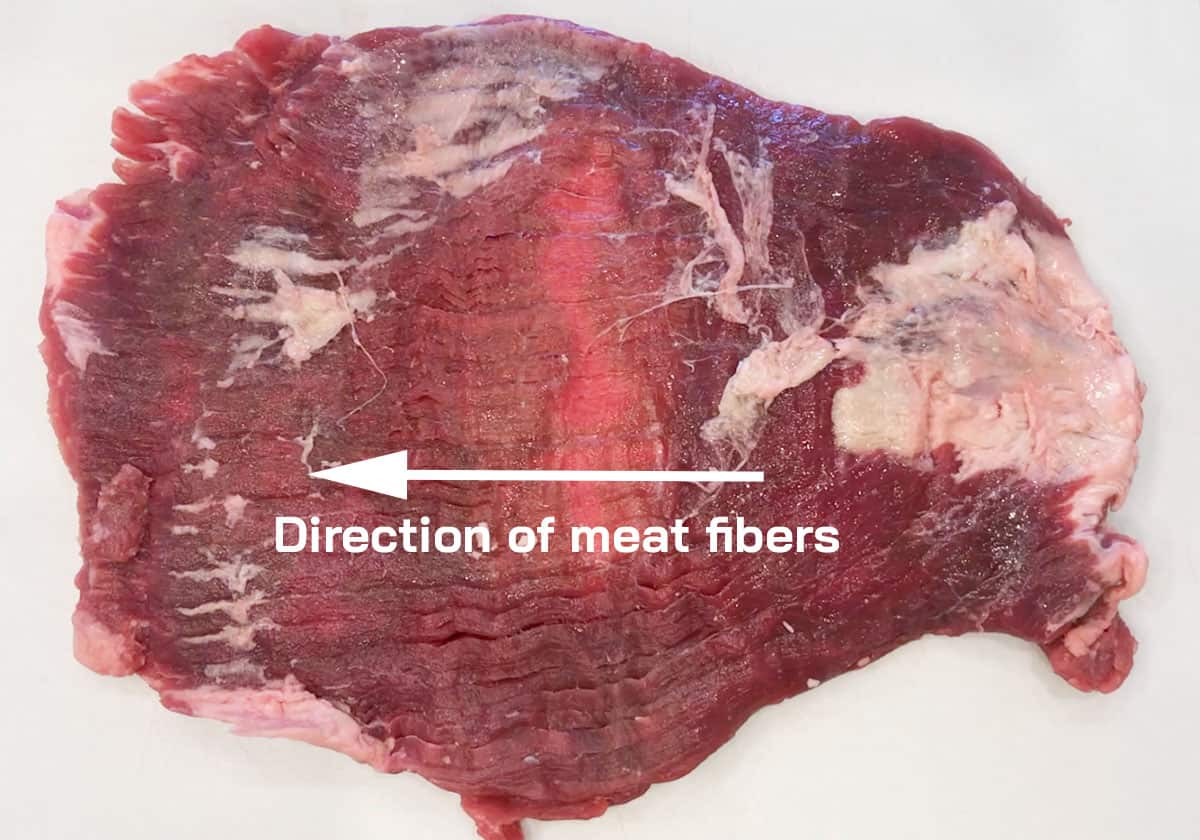

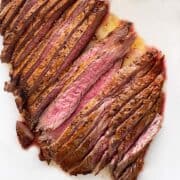

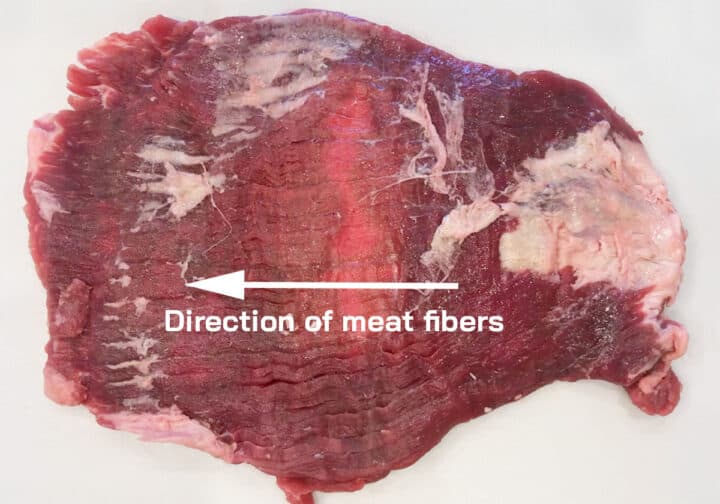






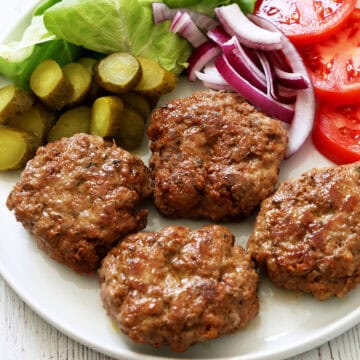
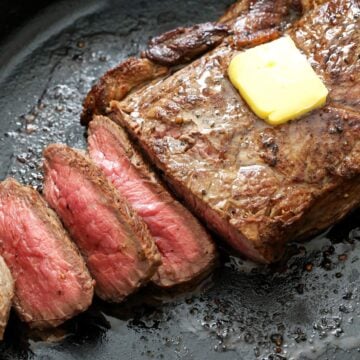

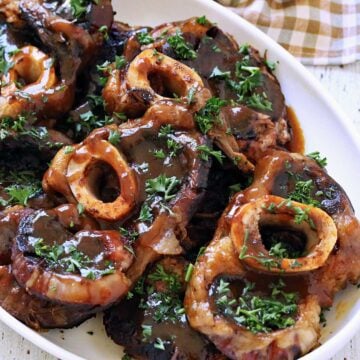
sarah says
does a throw away pan work for the broiling?
Vered DeLeeuw says
If the disposable pan is made of aluminum foil, it should work:
"Rather than always putting down a sheet of aluminum foil on a sturdy broiler pan, you can also use a disposable aluminum foil pan. Foil pans can be purchased inexpensively at supermarkets and then used as a standard broiler pan; there's no messy scrubbing or cleanup."
https://www.livestrong.com/article/472492-can-i-cook-on-aluminum-foil-in-the-broiler/